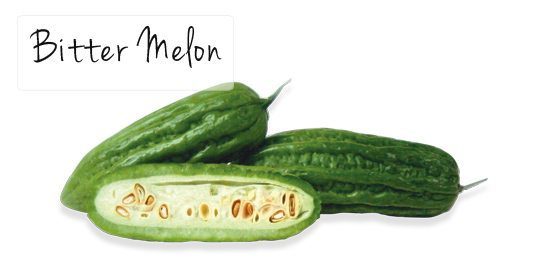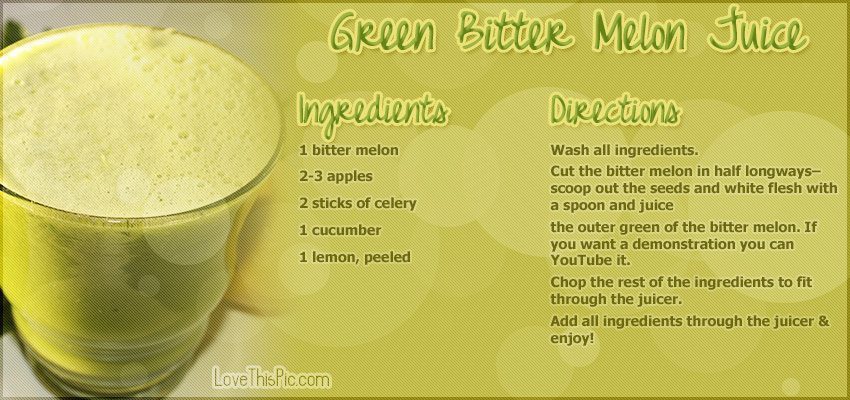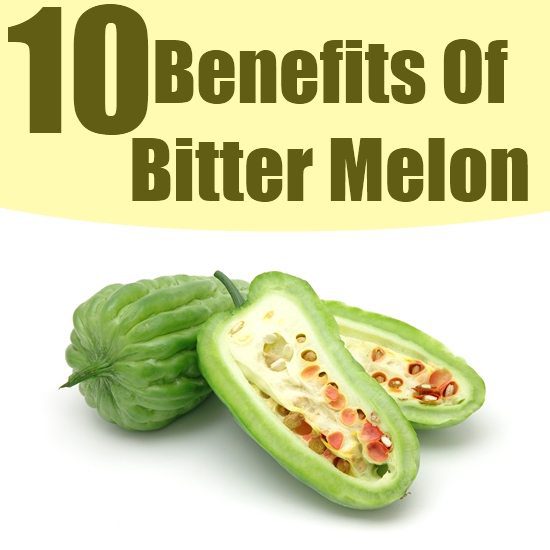Bitter Melon Plant – Cures Cancer, Stops Diabetes & More
 Bitter Melon (Momordica charantia), also known as balsam pear, bitter gourd, or karela, is widely cultivated in many parts of Asia, Africa, and South America and has been used
Bitter Melon (Momordica charantia), also known as balsam pear, bitter gourd, or karela, is widely cultivated in many parts of Asia, Africa, and South America and has been used
extensively used in folk medicines since old times as a herbal remedy for diabetes – specifically in India, China, and Central America.
The fruit of the bitter melon vine is usually harvested while it is still light green to pale yellow in color, as it becomes bitterer as it ripens. The young fruits are then split or cut in half, and the seeds and pith taken out and discarded. The fruit is then prepared as a vegetable or as a juice and is packed with various nutrients including high levels of Vitamin C and some uniquely valuable phytonutrients.
In recent times bitter melon has generated much excitement owing to its medicinal potential. For several years now animal studies have supported the hypoglycemic (glucose lowering) and hypolipidemic (cholesterol lowering) effects of bitter melon – indicating its potential as a supplement beneficial for diabetes, weight loss and more.
The fruit is said to be helpful in treating viral diseases such as measles. Also, in many parts of Asia, especially in the Philippines, it is believed that the consumption of bitter melon is helpful for preventing the contraction of malaria. Studies have shown that it does indeed possess antimalarial activity, although its efficacy on humans is still being analyzed. Aside from being used as an antiviral foodstuff, compounds in the bitter melon fruit have also been shown to help treat HIV infected individuals.
Bitter Melon As Anti-Cancer Agent
The literature regarding the anticancer properties of bitter melon is quite extensive. Bitter melon has now shown activity against cancers of the breast, pancreas, prostate, colon, liver, stomach and naso-pharynx, as well as leukemia and neuroblastoma.
Bitter melon has been found to kill cancer cells not only in a laboratory dish, but also in animal trials: In a paper published in Carcinogenesis, University of Colorado researchers administered oral bitter melon doses to mice and found a 64% reduction in pancreatic tumor size without noticeable toxicity. This is an amazing result and exactly the kind of selective action against cancer cells that researchers are looking for.

Breast cancer is the most frequently occurring cancer in women from Western countries. In a 2010 study from Saint Louis University (USA), bitter melon extract was effective against human breast cancer cells and primary human mammary epithelial cells. It was able to reduce the proliferation of cancer cells and induce cell death among breast cancer cells – and has been suggested as a dietary supplement for prevention of breast cancer.
Bitter melon has been demonstrated to increase the number of natural killer (NK) cells, which is usually low or reduced in cervical cancer patients who have a defective immune system. Its administration was also found to result in the arrest of the cell cycle among prostate cancer cells and halt the progress of prostate tumor.
Bitter Melon extract is available in capsule form as a dietary supplement through the usual sources.
Bitter Melon – Safety Note:
Due to its reported abortifacient properties, the consumption of bitter melon is inadvisable for pregnant women, while the toxicity of its seeds (typically discarded from culinary use) indicates their extremely limited and controlled uses. Its employment for the treatment of children’s ills is discouraged, as the seeds are regarded as highly toxic to children.
Click to Learn of the 10 Benefits of Bitter Melon
References:
[1] Grover JK, Yadav S, Vats V. Medicinal plants of India with anti-diabetic potential. J Ethnopharmacol 2002;81:81–100.https://www.sciencedirect.com/science/article/pii/S0378874102000594
[2] Jayasooriya AP, Sakono M, Yukizaki C, Kawano M, Yamamoto K, Fukuda N. Effects of Momordica charantia powder on serum glucose levels and various lipid parameters in rats fed with cholesterol-free and cholesterol-enriched diets. J Ethnopharmacol 2002;72:331–6.https://www.ncbi.nlm.nih.gov/pubmed/10967491
[3] Chao CY, Huang CJ. Bitter gourd (Momordica charantia) extract activates peroxisome proliferator-activated receptors and upregulates the expression of the acyl CoA oxidase gene in H4IIEC3 hepatoma cells. J Biomed Sci 2003;10:782–91.https://www.ncbi.nlm.nih.gov/pmc/articles/PMC3311063/
[4] Chen Q, Chan LL, Li ET. Bitter melon (Momordica charantia) reduces adiposity, lowers serum insulin and normalizes glucose tolerance in rats fed a high fat diet. J Nutr 2003;133:1088–93.https://jn.nutrition.org/content/133/4/1088.long (Free full text)
[5] Nerurkar PV, Lee YK, Motosue M, Adeli K, Nerurkar VR. Momordica charantia (bitter melon) reduces plasma apolipoprotein B-100 and increases hepatic insulin receptor substrate and phosphoinositide-3 kinase interactions. British Journal of Nutrition 2008;100:751–9.https://journals.cambridge.org/action/displayAbstract?fromPage=online&aid=2200760&fileId=S0007114508937430
[6] https://www.naturalnews.com/039583_bitter_melon_pancreatic_cancer_cytotoxicity.html
[7] Manjinder Kaur, Gagan Deep, Anil K. Jain, Komal Raina, Chapla Agarwal, Michael F. Wempe and Rajesh Agarwal. Bitter melon juice activates cellular energy sensor AMP-activated protein kinase causing apoptotic death of human pancreatic carcinoma cells University of Colorado, 2013.https://carcin.oxfordjournals.org/content/34/7/1585.long (free full text)
[8] Ray R.B., Raychoudhuri A., Steele R., & Nerurkar P. (2010). Bitter melon (Momordica charantia) extract inhibits breast cancer cell proliferation by modulating cell cycle regulatory genes and promotes apoptosis. Cancer Research, 70(5): 1925-1931. doi: 10.1158/0008-5472.CAN-09-3438. Full text: https://cancerres.aacrjournals.org/content/70/5/1925.long
[9] Pongnikorn S., Fongmoon D., Kasinrerk W., & Limtrakul P. N. (2003). Effect of bitter melon (Momordica charantia Linn) on level and function of natural killer cells in cervical cancer patients with radiotherapy. Journal of the Medical Association of Thailand, 86(1): 61-68.https://www.ncbi.nlm.nih.gov/pubmed/12678140
[10] Ru P., Steele R., Nerurkar P. V., Phillips N., & Ray R. B. (2011). Bitter melon extract impairs prostate cancer cell-cycle progression and delays prostatic intraepithelial neoplasia in TRAMP model.Cancer Prevention Research (Phila), 4(12): 2122-2130. doi: 10.1158/1940-6207.https://www.ncbi.nlm.nih.gov/pubmed/21911444
Source: Herbs-Info




